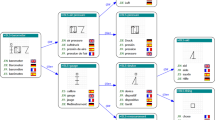Abstract
The performance quality of any Artificial Intelligence (AI) application is determined by the quality and completeness of knowledge used in it. Explosive growth of interest of Information Technology (IT) industry to use AI, which occurred about a decade and a half ago, is usually explained by a number of the recent achievements of AI, and among them emphasize the fundamental role of big data, Data Science, and also technologies of deep learning with neural networks in the basis. However, the real underlying reason for this raise of interest in AI is that these advances made available the knowledge hidden in big data. It can be expected that a new explosion of interest in AI technology will be possible when a new rich source of knowledge and effective technologies for accessing it become available.
Currently, AI applications can use three sources of knowledge: big data, digital twins, and experts. The aim of the paper is to outline the essence of these three knowledge sources, assess the maturity of the theoretical frameworks and technologies that support the extraction of hidden knowledge from each of these sources, and discuss the prospects for their development. The paper highlights the critical importance of developing knowledge engineering technology to effectively access the currently inaccessible wealth of knowledge hidden in expert knowledge due to the weakness of knowledge engineering compared to current requirements. At that, expert knowledge is now very much in demand in a number of critical next-generation applications, but the current state of the art with the knowledge engineering significantly slows down its practical implementation. The problem of integrating knowledge from different types of sources is also briefly discussed.
Access this chapter
Tax calculation will be finalised at checkout
Purchases are for personal use only
Similar content being viewed by others
Notes
- 1.
The level of intelligence is a rather fuzzy qualitative comparative characteristic of the type more intelligent - less intelligent, as judged by the individual [1].
- 2.
The concept of intelligence has been omitted in this figure so as not to clutter up the overall picture.
References
Cao, L.B.: Data Science Thinking. The Next Scientific, Technological and Economic Revolution, 367 pp. International Publishing AG, part of Springer Nature (2018)
Gavrilova, T.A., Koudriavtsev, D.V., Muromtsev, D.I.: Knowledge Engineering. Models and Methods. Textbook, 324 pp. St. Petersburg, Lan’ Publishers (2016) (In Russian)
Lee, L., Braud, T., Zhou P., et al.: All one needs to know about metaverse: a complete survey on technological singularity, virtual ecosystem, and research agenda (2021). arXiv:2110.05352
Rissanen, J.: On the theory of self-adjusting models. Automatica 1(4), 297–309 (1963)
Skiena, S.: The Data Science Design Manual. Texts in Computer Science, 445 pp. Springer (2017)
Grus, J.: Data Science from Scratch. O’Reilly Media, Inc., 2nd edn, 380 pp. CA (2019)
Cielen, D., Meysman, A.D.B., Ali, M.: Introducing Data Science. Big Data, Machine Learning, and More, Using Python Tools, 336 pp.. Manning Publication Company, NY (2016)
Kelleher, J.D., Tierney, B.: Data Science (The MIT Press Essential Knowledge series), 280 pp. The MIT Press (2018)
Igual, L., Seguí, S.: Introduction to Data Science. Undergraduate Topics in Computer Science, 218 pp. Springer International Publishing Switzerland (2017)
Gorodetsky, V., Yusupov, R.: Artificial intelligence: metaphor, science and information technology. Mechatron. Autom. Control. 21(5), 282–293 (2020). https://doi.org/10.17587/mau.21
Ackoff, R.: From data to wisdom. J. Appl. Syst. Anal. 16, 3–9 (1989). http://www-public.imtbs-tsp.eu/~gibson/Teaching/Teaching-ReadingMaterial/Ackoff89.pdf
Wikipedia. Dikw pyramid. https://en.wikipedia.org/wiki/DIKW_Pyramid
Chaim, Z.: Conceptual approaches for defining data, information, and knowledge. J. Am. Soc. Inform. Sci. Technol. 58(4), 479–493 (2007). http://www-public.imtbs-tsp.eu/~gibson/Teaching/Teaching-ReadingMaterial/Ackoff89.pdf, http://www.success.co.il/is/zins_definitions_dik.pdf
Rowley, J.: The wisdom hierarchy: representations of the DIKW hierarchy. J. Inform. Commun. Sci. 33(2), 163–180. http://web.dfc.unibo.it/buzzetti/IUcorso2007-08/mdidattici/rowleydikw.pdf
Saaty, T.L.: The Analytical Hierarchy Process, 297 pp. RWS Publications (1990)
Author information
Authors and Affiliations
Corresponding author
Editor information
Editors and Affiliations
Rights and permissions
Copyright information
© 2023 The Author(s), under exclusive license to Springer Nature Switzerland AG
About this paper
Cite this paper
Gorodetsky, V. (2023). Three Knowledge Sources and Three Constituents of Artificial Intelligence Foundation. In: Kovalev, S., Kotenko, I., Sukhanov, A. (eds) Proceedings of the Seventh International Scientific Conference “Intelligent Information Technologies for Industry” (IITI’23). IITI 2023. Lecture Notes in Networks and Systems, vol 776. Springer, Cham. https://doi.org/10.1007/978-3-031-43789-2_2
Download citation
DOI: https://doi.org/10.1007/978-3-031-43789-2_2
Published:
Publisher Name: Springer, Cham
Print ISBN: 978-3-031-43788-5
Online ISBN: 978-3-031-43789-2
eBook Packages: Intelligent Technologies and RoboticsIntelligent Technologies and Robotics (R0)




